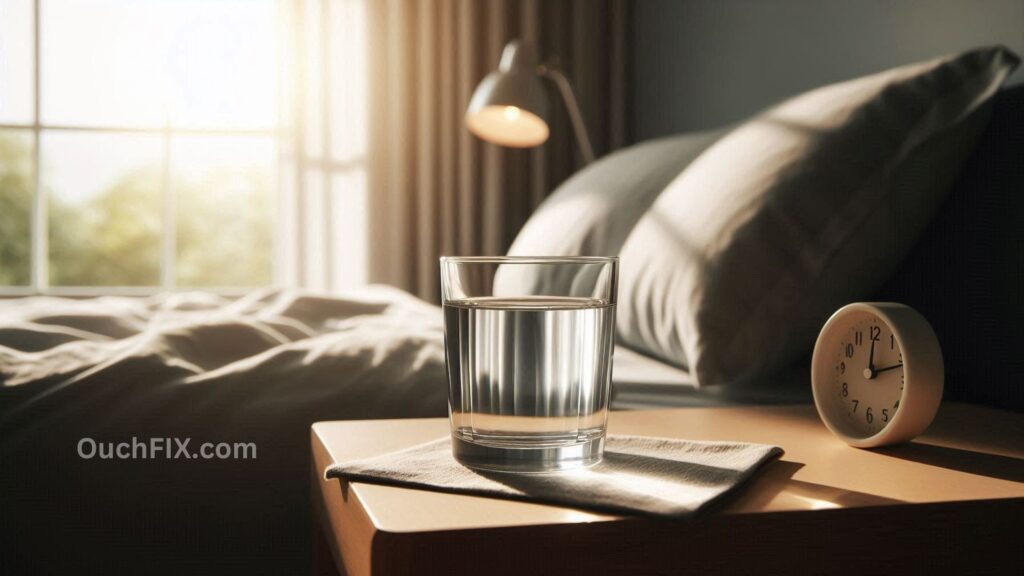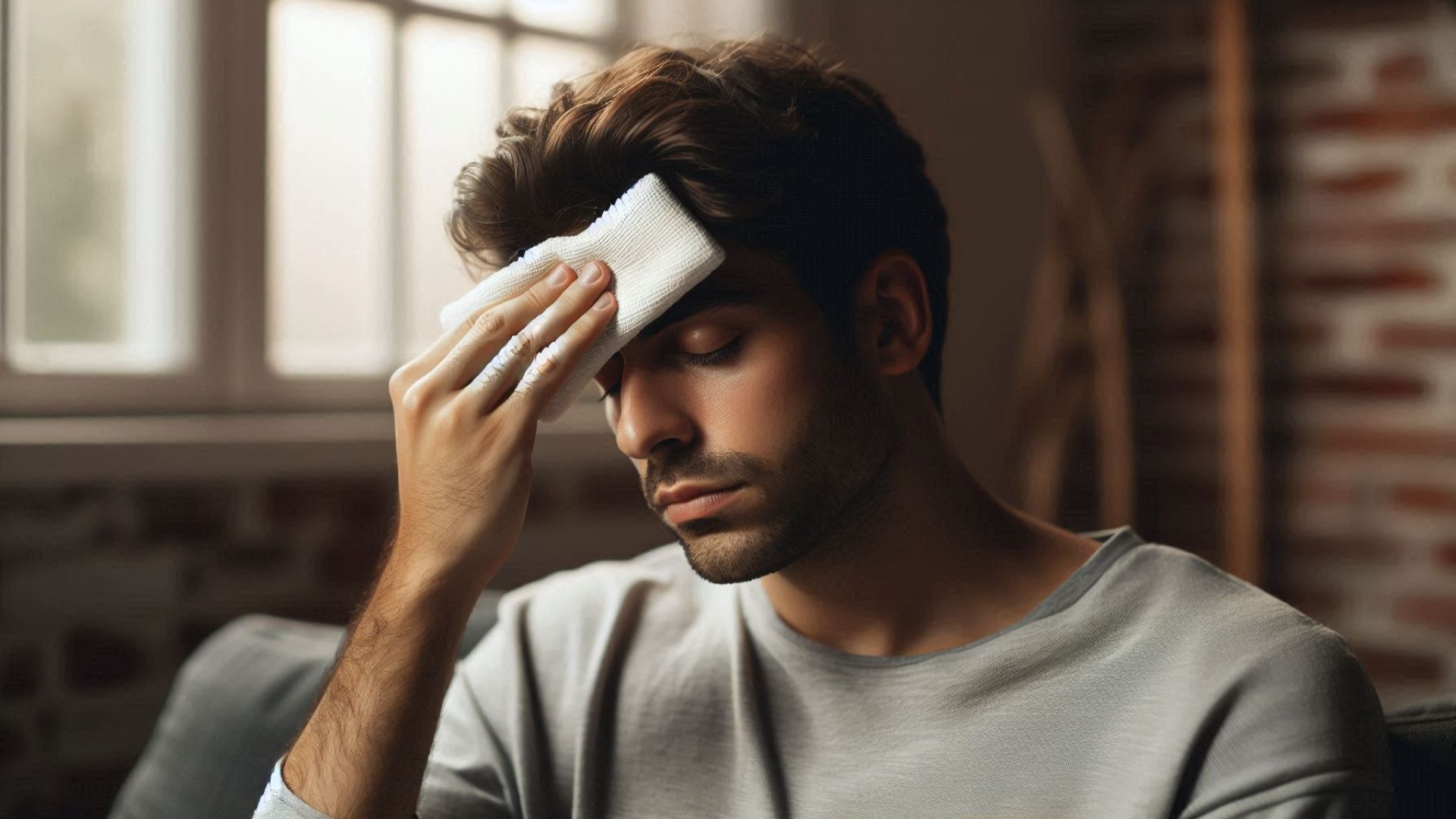Migraines aren’t just headaches—they’re intense, often debilitating experiences that can make everyday tasks feel impossible. While medication can help, many people seek natural ways to relieve migraine pain at home. Luckily, there are several remedies supported by research and expert advice that can ease symptoms and even help prevent future attacks. Here’s a comprehensive guide to 10 effective natural strategies for migraine relief.
1. Stay Hydrated
Dehydration is a common migraine trigger. Even mild fluid loss can affect blood flow and make headaches worse. Drinking enough water throughout the day is a simple yet effective way to reduce migraine intensity.

Tips to stay hydrated:
- Set phone reminders to drink water every hour.
- Infuse water with fruits like lemon, cucumber, or berries for flavor.
- Include herbal teas or coconut water as hydrating options.
Expert Insight: According to the Mayo Clinic, maintaining proper hydration can prevent some migraine attacks by keeping blood volume stable and reducing vascular strain.
2. Use a Cold Compress
Applying a cold compress to your forehead or neck can provide almost immediate relief. The cold constricts blood vessels, reducing the throbbing pain often associated with migraines.
How to do it:
- Place an ice pack or a cold, wet cloth on your forehead for 10–15 minutes.
- If you don’t have an ice pack, a bag of frozen peas wrapped in a towel works just as well.
Pro Tip: Alternate between cold and warm compresses to relax tense neck muscles while constricting blood vessels.

Also Read: What are Safe Natural Remedies for Arthritis Pain?
3. Get Good Sleep
Sleep and migraines are closely linked. Poor sleep or irregular schedules can trigger attacks, while consistent, restorative sleep can help prevent them.

Sleep strategies:
- Aim for 7–8 hours of uninterrupted sleep nightly.
- Keep your bedroom dark, cool, and quiet.
- Avoid screens at least an hour before bed to reduce blue light exposure.
Case Study: A 2020 study in Headache: The Journal of Head and Face Pain found that people who maintained consistent sleep schedules reported fewer migraine days.
4. Try Relaxation Techniques
Stress is a major migraine trigger. Mind-body techniques like yoga, meditation, and deep breathing can help calm your nervous system and reduce migraine frequency.
Easy practices to start:
- Spend 5–10 minutes doing deep breathing exercises in the morning.
- Try a short guided meditation before bed.
- Gentle yoga poses like child’s pose or cat-cow can release tension in your neck and shoulders.
Expert Tip: Mindfulness-based stress reduction (MBSR) has been shown to reduce migraine frequency and intensity in several clinical trials.
5. Drink Ginger Tea
Ginger is a natural anti-inflammatory that can ease migraine pain and reduce nausea.

How to make ginger tea:
- Boil a few slices of fresh ginger in hot water for 10 minutes.
- Strain and sip slowly.
- Add honey or lemon for flavor.
Quick Alternative: Ginger powder or pre-packaged ginger tea bags work if fresh ginger isn’t available.
6. Use Peppermint Oil
Peppermint oil has a cooling effect that relaxes tight muscles and reduces headache tension. Its aroma can also have calming effects on the mind.
Usage tips:
- Mix a few drops of peppermint oil with a carrier oil like coconut or olive oil.
- Gently apply to temples, forehead, or the back of the neck.
⚠️ Important: Never apply essential oils directly to the skin without dilution.

Also Read: How can I Relieve Joint Pain at Home with Natural Ingredients?
7. Avoid Bright or Flickering Lights

Light sensitivity is a common symptom of migraines. Harsh lighting can worsen pain, especially from computer screens or fluorescent lights.
Tips to reduce exposure:
- Take frequent breaks from screens, and consider blue-light-filter glasses.
- Dim indoor lights or use softer bulbs.
- Wear sunglasses indoors if necessary.
8. Eat Magnesium-Rich Foods
Low magnesium levels are linked to more frequent migraines. Including magnesium-rich foods in your diet can reduce both severity and occurrence.
Foods high in magnesium:
- Spinach, kale, and other leafy greens
- Almonds and cashews
- Avocados
- Dark chocolate (in moderation)
Supplement Option: If dietary intake isn’t enough, speak with your doctor about magnesium supplements.
9. Avoid Strong Smells

Certain scents, like perfumes, cleaning products, or even cooking aromas, can trigger migraines in sensitive individuals.
Tips to minimize exposure:
- Identify and track triggers in a migraine diary.
- Use gentle, natural fragrances like lavender or chamomile.
- Ventilate areas when using strong cleaners.
10. Try a Gentle Massage
Massage therapy can relieve muscle tension, improve circulation, and reduce stress, all of which can help with migraine relief.
Simple self-massage techniques:
- Roll a tennis ball under your shoulders while lying down.
- Gently rub the neck, temples, and scalp with your fingers.
- Consider regular sessions with a licensed massage therapist.
Expert Advice: A 2018 study in Pain Medicine found that massage therapy significantly reduced migraine frequency and intensity over a 10-week period.

Also Read: Can Dietary Changes Serve as Natural Pain Remedies?
Final Thoughts
Migraines can disrupt life, but these natural remedies offer practical ways to manage pain and even reduce frequency. Combining hydration, sleep, stress reduction, diet, and gentle therapies often works better than relying on one single method.
Remember: If migraines become more frequent, severe, or come with new symptoms, consult a healthcare professional for proper evaluation and treatment.
Frequently Asked Questions (FAQs)
Q1. Can dehydration really trigger migraines?
Yes, even mild dehydration can reduce blood flow to the brain and trigger headache symptoms.
Q2. How long should I apply a cold compress for a migraine?
10–15 minutes is usually sufficient. Repeat as needed, allowing the skin to warm up between applications.
Q3. Are essential oils safe for everyone?
No, always dilute essential oils before use. Avoid use in children, pregnant women, or people with skin sensitivities without consulting a professional.
Q4. Can magnesium supplements prevent migraines?
Studies suggest magnesium can reduce migraine frequency, but consult your doctor before starting any supplement.
Q5. How can I identify my migraine triggers?
Keep a migraine diary tracking foods, stress, sleep patterns, and environmental factors. Over time, patterns will emerge.
 Skip to content
Skip to content




